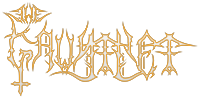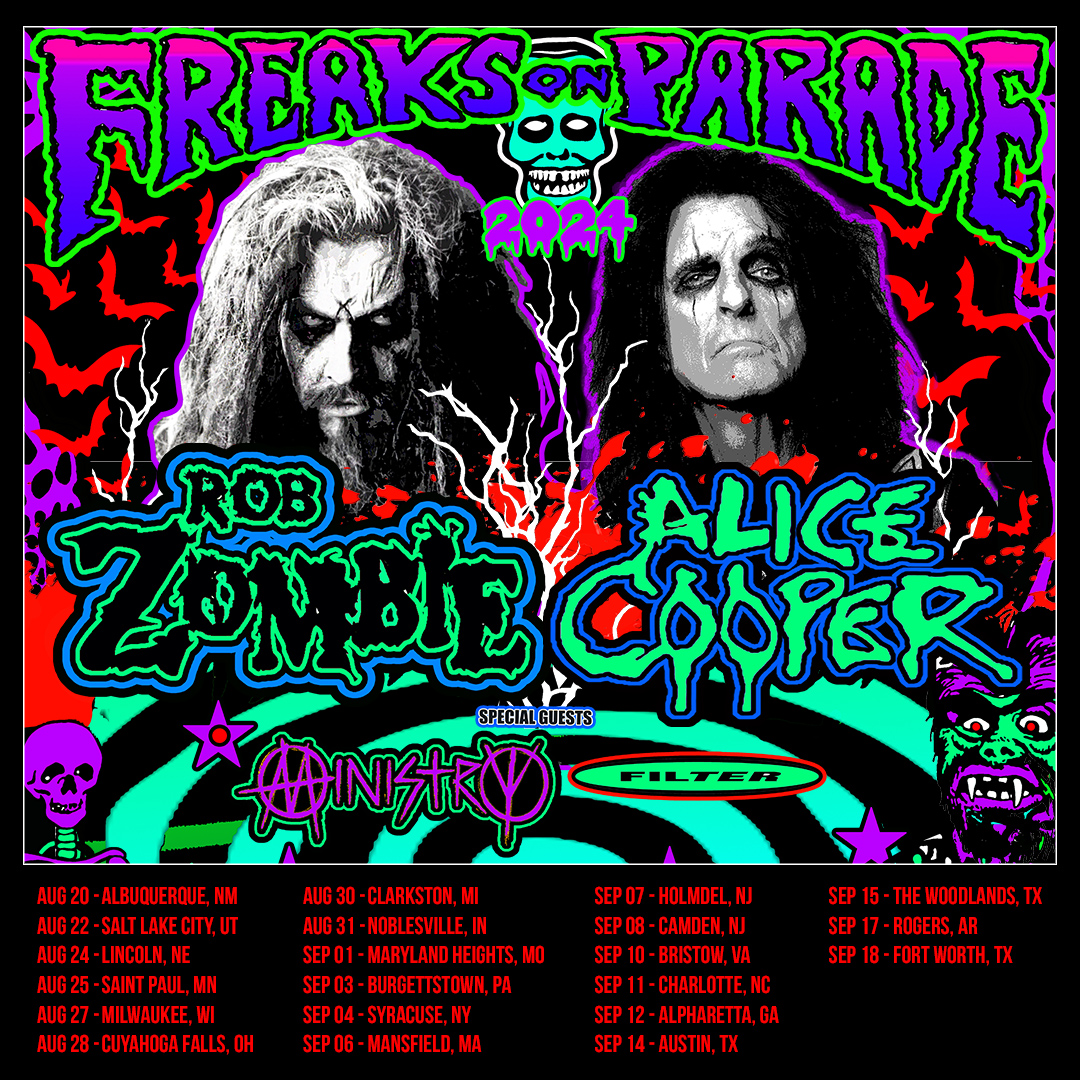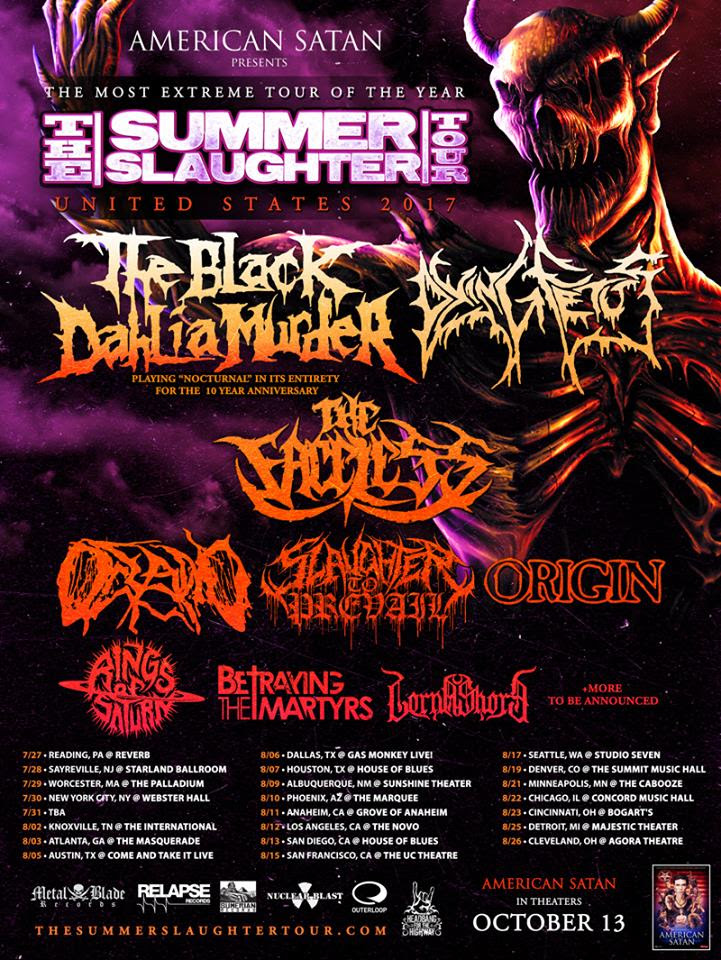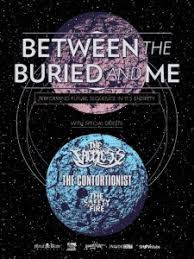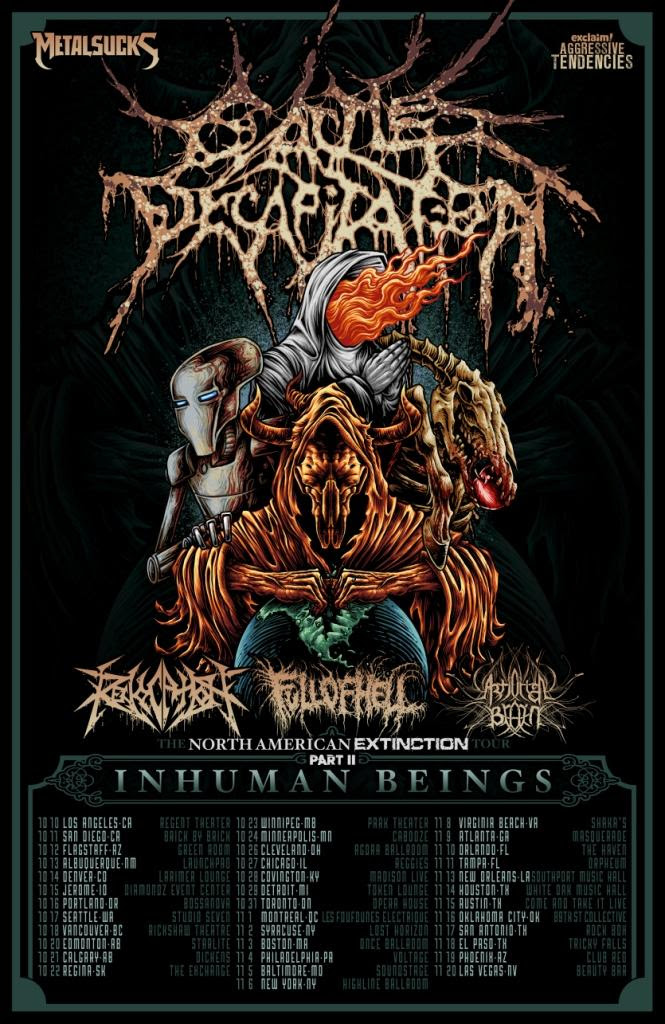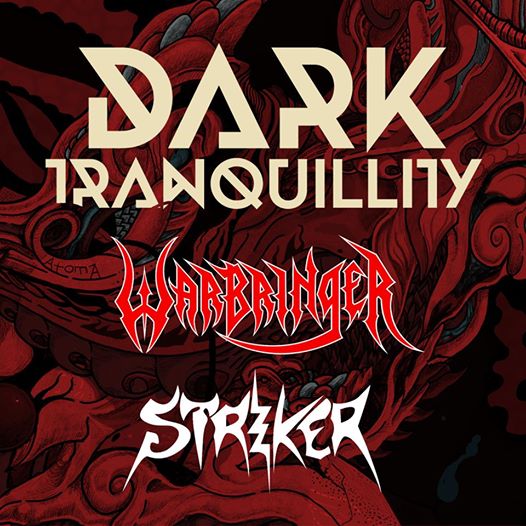Tristania Interview
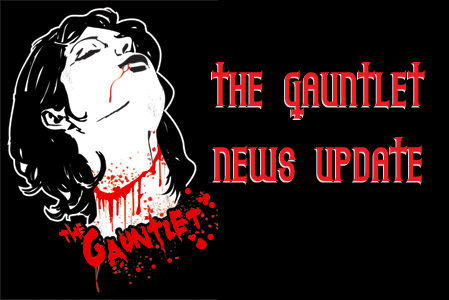 One of the leading gothic metal bands on the European scene, Tristania combine both passion and power in crafting their hauntingly beautiful music. Recently, the group released a Special Edition of their critically acclaimed "Ashes" CD, which should hold diehard fans over until the band hits the studio in febuary 2006 to record their next effort. Anders gives us the latest on the band's summer activities and future plans...
One of the leading gothic metal bands on the European scene, Tristania combine both passion and power in crafting their hauntingly beautiful music. Recently, the group released a Special Edition of their critically acclaimed "Ashes" CD, which should hold diehard fans over until the band hits the studio in febuary 2006 to record their next effort. Anders gives us the latest on the band's summer activities and future plans...The Gauntlet: Unfortunately, the group will not be making it to Chile and Argentina on the forthcoming Latin America tour. Why did the governments of those countries decide to disallow the concerts? Are you looking forward to playing concerts with Kreator? Do you feel that the group's contrasting styles will make for a well rounded bill?
Anders: Now that this tour is done I can tell a little about how it was.
It was a good tour, and - like with the previous times we've been there - we really enjoyed touring in Latin America again. The fans we play for in Latin America will always represent something very special for us. We had a good time with Kreator, and I think it was an interesting package for open-minded people who are into metal in general (Orphaned Land joined as a third band on the bill on the Mexico shows). On the other hand one can argue that the contrast between Tristania and Kreator is too big. I think the audience on that tour could be classified in 3 categories; either they came for Kreator or they came for Tristania, and the third category of people came to see both bands. On some of the shows I think that this 3rd category of fans were too few. But then again; other nights it was different, and the majority of the crowd was into both bands. Regarding Chile and Argentia: From what I've been told it was due to an incident in Buenos Aires in December last year, where a large number of people died when a fire broke out in a venue. The governments temporarily closed all venues. We got the info some weeks before the tour that, and off course it was very sad to hear that these shows couldn't be arranged. We were looking forward to come back to Chile for the first time since 2002, and to play Argentina for the first time ever. Hopefully next time?
The Gauntlet: How was the reception during the Norwegian dates? In the past, you had not ventured across the entire country on a tour. Did you find that you have many fans across the country? Did the fans seem to enjoy the new material live? The band also played for the first time in Sweden and Denmark. You had not previously performed in these countries.
What was it like to perform in these countries for the first time?
Anders: There are only 4,5 million people living in Norway, and until now this has been a bit too small in order for music styles like metal and goth to achieve a solid fanbase up here. But the tendency is very clear:
during the last couple of years this has started to change, and more and more people are getting into this music in Norway. Generally the reception on the Norwegian tour was very good, and in the ?big" cities many people attended the shows. Also we did some concerts in some small villages on this tour, and in some of these places the amount of people that showed up wasn't too big. You can't really expect too much people if there are only living 2-4000 people in the village? As long as the audience is into the concert (which they were) it doesn't really matter whether we do a festival show in front of 20,000 people or a small club show with 100 people - as long as the audience have a good musical experience. It's all about chemistry. For some reason which I do not know, the show in Denmark was changed to an extra Norwegian date, but the Sweden show was very nice.
It's always a special thing to do your first gig ever in a country. The new material has proven to work very good live, both in Norway and the other territories we've toured after the release of Ashes. Songs like Libre, Circus and especially The Wretched seems to have already become live favorites for our fans, and these are songs that we definitely will include in future shows.
The Gauntlet: What was it like to tour with Nightwish? Are the members of Tristania fans of Nightwish?
Anders: The Nightwish tour was a fantastic tour for us in every way, as we got a fantastic opportunity to play for a very big audience. Normally we only play for such big crowds in Europe on outdoor festivals, but to play for this many people indoor was fantastic (on our last show on that tour there were 13,000 people). Nightwish have grown really big even in the mainstream audience, so most people in the crowd had probably never heard about Tristania. It was a golden opportunity for us to present our music for all these people who didn't know Tristania at all. We did some very good shows on that tour I recall. We had nothing to loose, and we had to work hard in order to convince a crowd that was only waiting for Nightwish. In total it actually worked out very good, even though our music is quite different from the Fins', and I guess more extreme. The crowd usually seemed a bit surprised and skeptical when we kicked off with one of the hardest songs from Ashes; Libre, but most nights we got them going during our concert. Personally Nightwish is not my cup of tea, but it's obvious that they are very good at what they do. I think Kjetil likes a couple of their songs, but as far as I know none of us are fans of Nightwish.
The Gauntlet: How do you feel the overall sound of the group has progressed over the years? Do you see music as an evolutionary art form?
Anders: For us music is definitely an evolutionary art form. We have never made the perfect album, and there are always things you want to improve as a composer and artist. I think this is a good thing because it keeps you motivated to always make a better album. I don't hope that we ever will record an album that we are 100% satisfied with (and I don't think we will). Then I think the band would be dead creative-wise and in terms of motivation. It has always been important for us to experiment and play around with loads of different music styles and influences. I would regard it as a big defeat if we would record an album which sounds like any previous album. In order to make music interesting you have to forget about genres and labeling your music. It's a clich?, but a true one: there are only two kinds of music: good and bad. In my opinion the 4 albums we have released this far are all quite different to each other. Each album represents a new era for the band, but at the same time they all sound like Tristania. This is something that we are very proud of. You develop all the time as person, musician and composer - so I think it would be impossible to record the same album twice.
The Gauntlet: Please tell us how the usage of dual vocalists affects the overall sound of the band.
Anders: The diversity in the vocals has always been very important for us - from the first album. We have 3 very talented singers who each add their special touch to our music. Our music is very diverse, so it's important for us to have this diversity on the vocal side as well, as a typical Tristania song varies between many different moods and atmospheres. We always experiment a lot with all the vocals when we compose new material, and often we try out all vocal styles on the same part to find out what works best.
The Gauntlet: Can it be difficult to make decisions regarding songwriting and business affairs being that there are so many members in the group?
Anders: Now we count even more members, as Svein Terje Solvang has joined as a permanent guitarist, so we are actually 8 members at the moment. It quite amazing, but actually we never have problems or arguments because of the big number of members. Both musically and socially we go along very well together. I think the main reason for this is that we are close friends who spend much time together when we're not working with the band as well.
The Gauntlet: Tell us about the video for 'Equilibrium'. Is there any location where fans may view this clip online? You flew Ralf Strathmann over from LA to direct the clip. What was it like working with him on the video? Do you feel the end result conveys the emotions you were looking to express in order to best portray the song?
Anders: We recorded the Equilibrium with Strathmann in our hometown Stavanger, in the same locations that we used for the promotional photos for Ashes: an old brewery that has been closed down for years. Ralf Strathmann is both a photographer and film director, and as he did the photos we thought that it would be cool both to work with him and use the same locations again for the video. The video turned out quite nice, I think - and it suits the expression from the photos perfectly. I'm sure that we will cooperate with Ralf Strathmann again some time in the future - he is a very talented guy who is dedicated to his work. After this we have also recorded a second video for another song from Ashes: Libre. This is a completely different song than Equilibrium, and we wanted the video to be completely different as well. We worked with a Swedish director called Mats Lundberg on that one, and we are very satisfied with it.
Both videos can be found in the music section on our web page www.tristania.com.
The Gauntlet: What do you feel is the most difficult aspect of being a musician? Do you feel that you have to live up to certain expectations from fans when you create an album? Do you consider the band to be more of a ?studio band" or a ?touring band?" Which environment suits the band members the best?
Anders: The fans' expectations are something we can't consider when we are working on new material. If that would be the case I we wouldn't be true to ourselves when composing, and then I don't think we would have been able to make good albums. The most difficult thing with being a musician is definitely that we're not able to live fully on the music yet - which leads to a problem with time. Most of us got regular day jobs beside the music, and it is often a challenge to have time for everything. At the moment I'm the only one who doesn't have a regular job, and we would often wish that the day would have more than 24 hours? Studio work and touring are two very different things, and we enjoy both of them very much. For us it is two complementary sides of music, and we could never have been only a studio band, for example. Studio work is usually a very stressful process for us, where we work night and day in order to be finished in time. But even though it's stressful, it's also a fantastic feeling when the material slowly is taking shape. The studio process usually lasts for a long time, because we are working systematically with pre-recordings for months before the actual studio session. When the album is done we always are very keen on going on tour again and present the new material for the fans. We definitely will be both a studio band and a touring band in the future as well.
The Gauntlet: Why did Einar decide to remove himself from the touring lineup? How does this decision affect the group in a live situation? It has been said that he is working on new material for the band. Does the separation make it harder to work on songs, or do you feel that in a sense, the Tristania will be able to accomplish even more by working in this manner?
Anders: After being away from his regular day-job for months with the making and recording of Ashes, it was impossible for him to come along on all the tours that we did this year. We use harddisk recorder samples to replace the important synth parts live in order to create the correct sound, so soundwise it doesn't affect us very much. Off course we would preferred to have a keyboard player on stage, but we just have to accept the fact that we cannot afford bringing an extra session musician with us on tour. We are already 7 musicians on stage. It's still Einar and I who compose most of the music together, and he is still very much involved in this process. And there is absolutely a chance that he can join us live again in the future.
The Gauntlet: What do you feel are the most powerful tracks on "Ashes?" Do you approach songwriting on a track by track basis and then determine what is best for the album, or do you begin with an overall idea of the way in which you would like the record to sound straight off?
Anders: I like all the tracks on Ashes, but if I have to select something that is extraordinary for me it has to be The Wretched and Endogenisis. In my opinion those two songs capture everything that Tristania is about in 2005. The live approach we had when we composed the material for Ashes also makes The Wretched a personal favorite track to perform live as well (I think this goes for the whole band, actually). We always start with basic ideas and the songs are being developed out of this. So we definitely approach songwriting on a track by track basis. When we have many songs, we pick out the ones that we think will work as an integrated whole on an album.
The Gauntlet: How is it that you choose to describe your style of music for metal fans that have never had the honor of hearing the group before?
Anders: I find it very difficult to describe our music with few words. I prefer to put on an album so people can get the idea. We are a metal band, but I find it impossible to be more specific in labeling our music. We are inspired by so many different music styles, and all of these are coloring our music. We have often been described as gothic metal, and even though I think we have these elements as well, our music is so much more in addition. The diversity is one of our trademarks, so it's easier to let the music speak for itself.
The Gauntlet: You released two versions of "Ashes", one being a special Digipack release containing an extra track? Why the decision to release the album in two separate packages?
Anders: SPV wanted to release a limited edition with digipack - it wasn't something that was important for us. It understandable, though, that the labels want to make the first edition exclusive when it hits the stores - when you consider how much music people illegally download with file sharing programs nowadays. The Gate fits well as a bonus track, so we didn't have any problems with this.
The Gauntlet: The band has several festivals coming up in 2005, including the prestigious W:O:A festival. Does the band enjoy playing these larger concerts? What are the advantages of being able to be seen at these prominent events?
Anders: Festivals are always cool, and the best thing about is that you get to present your music for a very big audience. The festival shows we've done this summer have all been really good. On Wacken Open Air we were so lucky to get to be the opening act that kicked off the whole festival on the main stage.
The Gauntlet: What do you feel is the most important success of the band's career thus far?
Anders: When I look back it's really amazing to think about all that we have achieved since we released the demo 9 years ago - I feel really privileged. There have been milestones and special experiences almost each year since we started up, so it is really difficult to point out one thing. Also, I think the best is yet to come. We're working harder than ever, and the upcoming album looks to be a killer. We plan to hit the studio already in February.
Read More News
Tags: Tristania , Anders, interviews
EF September 23, 2005
